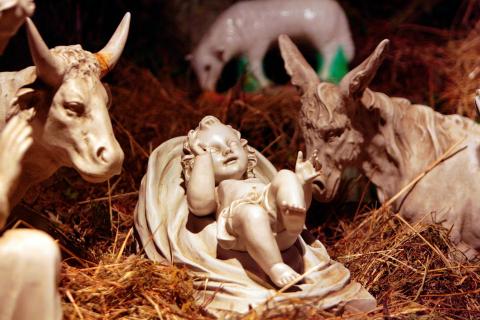
Archbishop Charles Chaput recently penned a book review for The Public Discourse, which considers the Christian position in a secular world: “today’s secularism dispenses with the supernatural, but then needs a stand-in for the devil, a this-worldly scapegoat for the persistence of evil. And an ideal candidate for that role is biblical religion, especially the Catholic Church. No matter how compliant or fellow-traveling a ‘progressive’ Christianity tries to be, it will always be the necessary enemy.”
It wasn’t so long ago, though, that a kind of nominal Christianity – far from being the “enemy” – was the social expectation. To be Christian was a respectable, sensible, upstanding thing to be, the mark of a person of integrity and decency. It was necessary to achieve any kind of political or social standing in the world, and one benefitted by holding onto it regardless of whether they were truly a disciple of Jesus. Even into the twenty-first century, for instance, candidates running for president went to church publicly, and would have had a hard time getting elected if they hadn’t.
But as the Archbishop notes, those times have faded from view. There is no longer any worldly advantage to being a Christian. The opposite is true: it costs a lot to profess belief in Christ, too much for those who wanted only social gain by it, and as a result, the number of those nominally committed to Christian faith, and the vestiges of a socially required, apparently flourishing Church, are a quickly dissipating vapor trail.
The Archbishop suggests that the Church needs, then, to lean into the true narrative of what Christianity offers, however unpalatable it may be to a nominal, ultimately this-worldly faith: an “alternative to the modern narrative,” not a useful means toward its “progressive,” newly respectable ends. He ends his review by exhorting, “we can no longer afford a sclerotic Church, a comfortable Church, a get-along Church. We need to be a confessing Church, not just in our diocesan structures, but in the pews and family homes of every parish. We now really do live, as Glendon says, in ‘the hour of the laity.’ And the Church and her mission really do depend on zealously committed laypeople to turn words like ‘the new evangelization’ from a pious slogan into the active witness of their lives.”
The call for the “active witness of our lives” is a gauntlet that’s been cast down by any number of Church leaders. But what does it mean, exactly, for what we’re meant to do with ourselves? How do we live a “zealous” faith – especially in a way that’s distinct from those, a handful of decades ago, who just made sure to publicly go to church?
One could assume that what’s needed is a more curated external response. But we should hear, instead, a call for deeper and deeper conversion. The Church and her mission are counting on Christians who have gotten to know Jesus. Who have encountered God. And who have, as a result, something to say about him to their neighbor. For those inspired by Archbishop Chaput’s call for a “confessing Church,” then, that’s probably the first task: get to know Jesus. He handles the rest.
The September 2023 beatification of Józef and Wiktoria Ulma, along with their seven children, who were executed in 1944 by German soldiers for the crime of hiding a family of Jews, serves as a potent reminder for Christians: fear of death should not govern our lives.
Many parts of the country (and world) saw large groups of new converts brought into the Church on Easter. What draws new converts to the Faith?
Learn more about the Carthusians of the Transfiguration, a community of nineteen monks living in deep seclusion in the forests of Vermont.


